Jed's Story
The Crack In The Walnut
A very moving and inspiring story of a mother trying to find a way for her special needs son to grow and develop, and to bring a little joy into his life.
We share this story, told in the mother's own words and even more powerfully, with videos of her son playing at different stages of his learning. It is well worth your time. We are stunned and thrilled at his progress. It shows that if Jed can succeed, then virtually anyone can now learn to play piano and read music, and that experience may be more tranformative than any of us imagined.
When we got that card from Jed's mom, we were really surprised and inspired. This was a result that was well beyond what we every planned for or hoped, and it validated that we were onto something important and necessary. Over those difficult next few years, Jed's story kind of became a lighthouse for us. If he and his mom didn't give up, how could we?
We hung that card up on our office wall, and it was a great bit of feedback from an unexpected customer. We had not designed the game for special needs children, and really did not imagine it being used for that purpose, a kind of home grown music therapy. Yet Jed's mom had opened a window for us, that this system could be much more than an entertaining or even educational software, this could be transformational.
Perspective From Jed's Mom
Jed's Progress
 His self esteem as he mastered the songs was very moving as well, he clearly delighted in being able to do something. She shared that this seemed to unlock other abilities as well, he could now do puzzles, by himself, and fell in love with Legos and was building huge pieces by himself, even a 5000 piece Millenium Falcon Star Wars set.
His self esteem as he mastered the songs was very moving as well, he clearly delighted in being able to do something. She shared that this seemed to unlock other abilities as well, he could now do puzzles, by himself, and fell in love with Legos and was building huge pieces by himself, even a 5000 piece Millenium Falcon Star Wars set.
I frankly was stunned. I realized that Jed's dramatic example must have roots in very powerful effects of playing music on the brain, probably far beyond what I had imagined possible. I asked May if I could share her story with other special needs parents.
We began to reach out to about dozens of special needs families, teachers, schools, and asked them to sample the software and give us their feedback on their students or children. What came back very strong in particular was people on the autism spectrum, even very low functioning students were attracted to it, and able to play it, usually succeeding at a high level after only a few tries.
While Jed's example was particularly dramatic because she had filmed it and shared it, it was not unique, in fact it was working in an amazingly broad set of challenges and cases. (You can see other testimonials and feedback here) .
I had to understand this. I went back online to do more research on the benefits of music on the brain, because nothing I had read about before explained this level of impact.
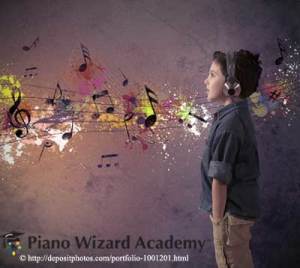 What I found, was that we were in the middle of a new age in neuroscience, one where new tools like Functional MRI's allowed researchers to observe the brain in thought, and they were seeing that the brain could and did physically evolve in different ways depending on the challenges and activities it engaged in.
What I found, was that we were in the middle of a new age in neuroscience, one where new tools like Functional MRI's allowed researchers to observe the brain in thought, and they were seeing that the brain could and did physically evolve in different ways depending on the challenges and activities it engaged in.
That there was a concept called neuroplasticity that meant that old conventional wisdom about the brain being physically static after about 8 years of age, was completely false. The brain can and does continually change, and evolve and even grow, and that two activities in particular acted like a tonic on the whole brain.
Music did not merely improve those immediate parts of the brain, but is "metaplastic" in its effects, enhancing a wide ranging number of cognitive functions, sometimes dramatically.
His mother recently sent us these videos where she shares on a deeper level how the music benefits of Piano Wizard Academy have changed her child's and her family's life. First she talks about his improvement in discipline and concentration, and how this affected his ability to play with Legos, which gave him another project and freed her up dramatically. Listen to his progress and how important this is for his self esteem and growth.

Significant cognitive impacts across the board, including math, language, spatial skills, coordination, social skills, sense of timing, and more, with the benefits lasting for years, even into advanced old age. In dozens of new studies, more and more benefits to playing music were being proven every day. Our game's simplicity meant these benefits of music could be much more accessible for a much bigger part of the population, even those thought "out of reach", with impacts well beyond what we had ever hoped.
After about a year, I decided to reach out again to May, and get an update on Jed. When we had last spoken, I had suggested to her that perhaps he was ready to move off the game to reading the sheet music. She felt that was a bridge to far, that he could handle the game, but that sheet music would be too abstract and difficult. Still, I suggested she try. Now, a year later, we talked on the phone, and what she told me shocked me again.
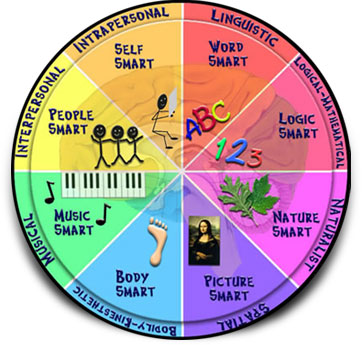 "I'm so glad you called, we are on song 99 in the 100 song children's curriculum that comes with the Piano Wizard Academy." said May. (After the initial curriculum, there are another 100 songs, but they do not have the fingering numbers for each note built in.)
"I'm so glad you called, we are on song 99 in the 100 song children's curriculum that comes with the Piano Wizard Academy." said May. (After the initial curriculum, there are another 100 songs, but they do not have the fingering numbers for each note built in.)
"But the last ten songs are not actually part of the curriculum, those are challenge songs, it's Bach, Beethoven and Mozart . . . " I replied
"Well, we didn't know, so we just kept going . . " I asked her further if she had ever tried taking him to the sheet music, she said, "yes, he took to it really easily, I was surprised."
She then sent me a couple of updated videos, with Jed playing Bach's "Jesu, Joy of Man's Desiring" and a two hand arrangement of Beethoven's "Fifth Symphony" from memory at an upright digital piano.
As the creator of this method, this was for me a very moving and fulfilling confirmation that years of work, by the whole team, was both worthwhile, and important. And that we needed to continue to innovate and build on this.
Then she shared more. Jed was now reading, doing simple math, and had started going to public school with his brothers. His principal at his school even said he thought it was possible that he could live independently someday, because he had focus and follow through on his tasks.
He was still challenged, but as she said, "It's different. We can talk, about dinner, about what's on TV, we can travel without him getting lost, he is very proud of his ability to play. We laugh together. Our family is almost normal." When she said that I think I finally reflected on what it must have been like for her and the rest of the family to be always "on", alert to where Jed was at all times, helpless to communicate or understand him, and perhaps thinking this was the way it always would be.
I began to fully appreciate the miracle that music could mean to others.
May began to look online for other sources of MIDI files, and since our game allows you to import any MIDI file, and to add your own fingering numbers to new songs, the whole world of music is open to him. He has his own Youtube channel where May shares his latest songs with their friends and family. He could work professionally as a musician someday, in my opinion. In any case, it has opened up worlds for him, and we couldn't be prouder of his progress.
Wow is Me TV - Adryenn Ashley interviews Chris Salter of Music Wizard about Jed
As I reflect on the last 6 years, I see some important trends that we feel lucky to be a part of, a revolution in neuroscience, with the importance of music in education taking its rightful place again as a core competency that enhances all other cognitive functions, a mobile touch screen market that allows massive scalability, low cost distribution and almost universal access, and a possibility of a world full of native language musicians, whose instinct is to play together, and collaborate, and harmonize.
To a better world. Thank you Jed for helping us through the storms.

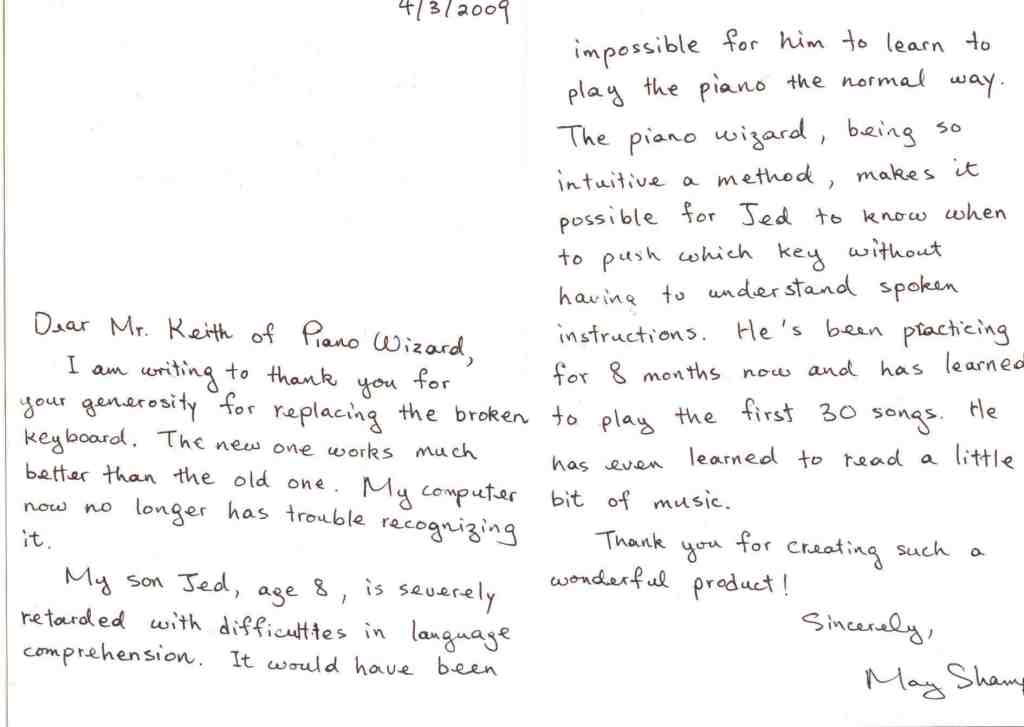
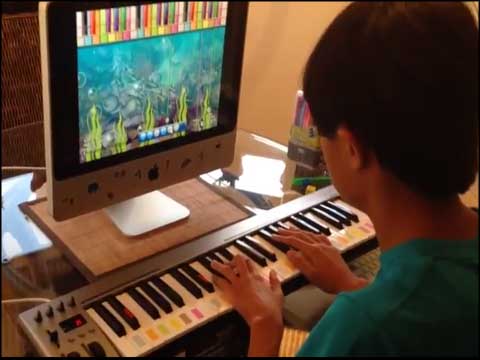
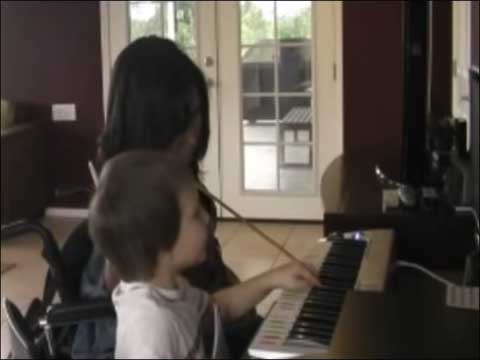
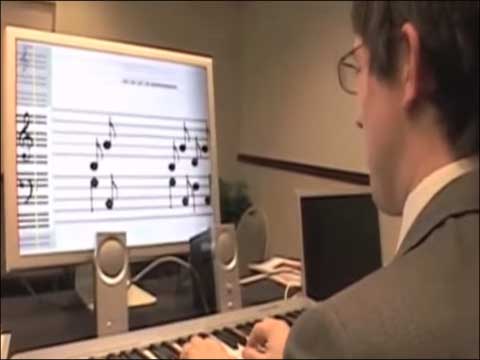

Thank you!
Please share Piano Wizard with your friends and help spread the joy.